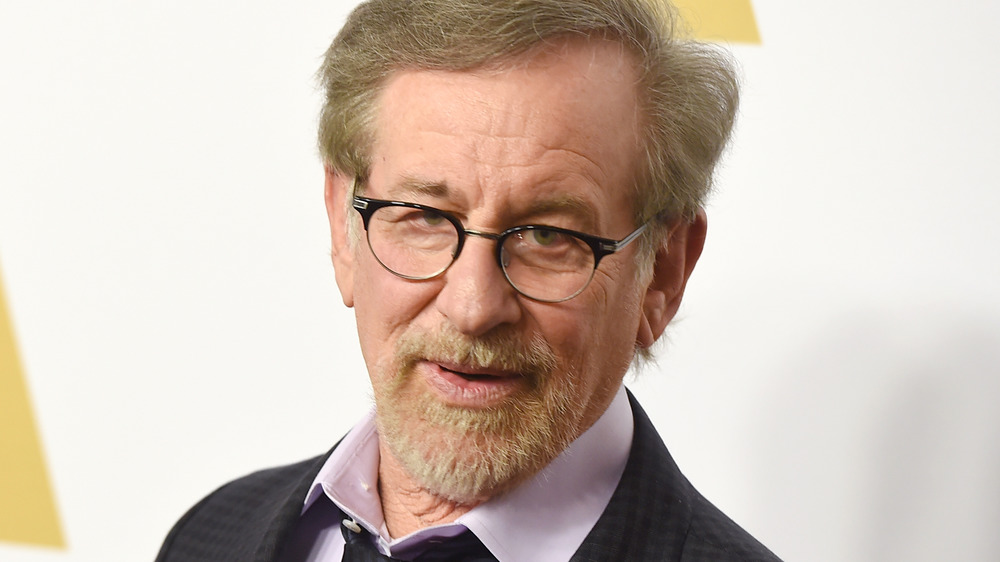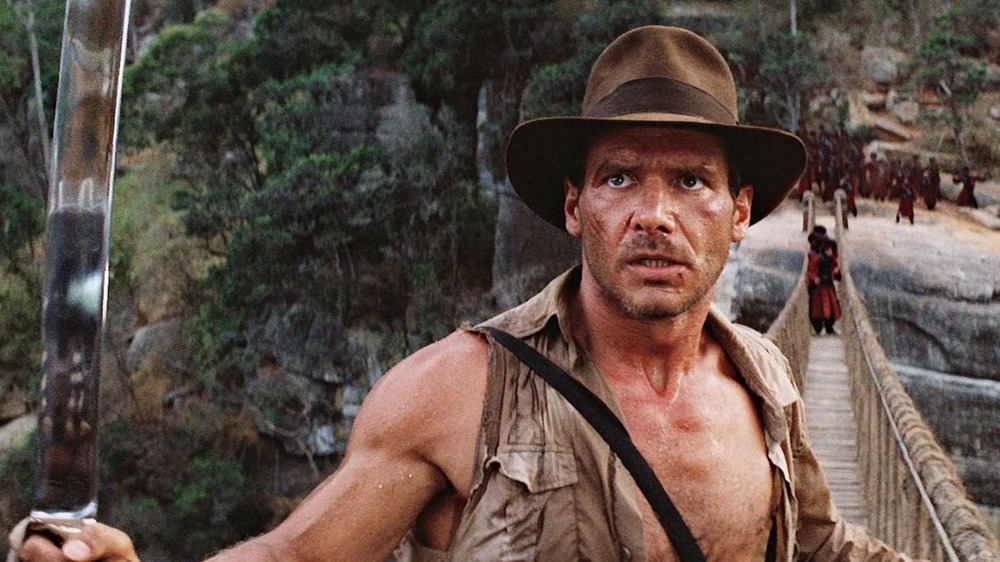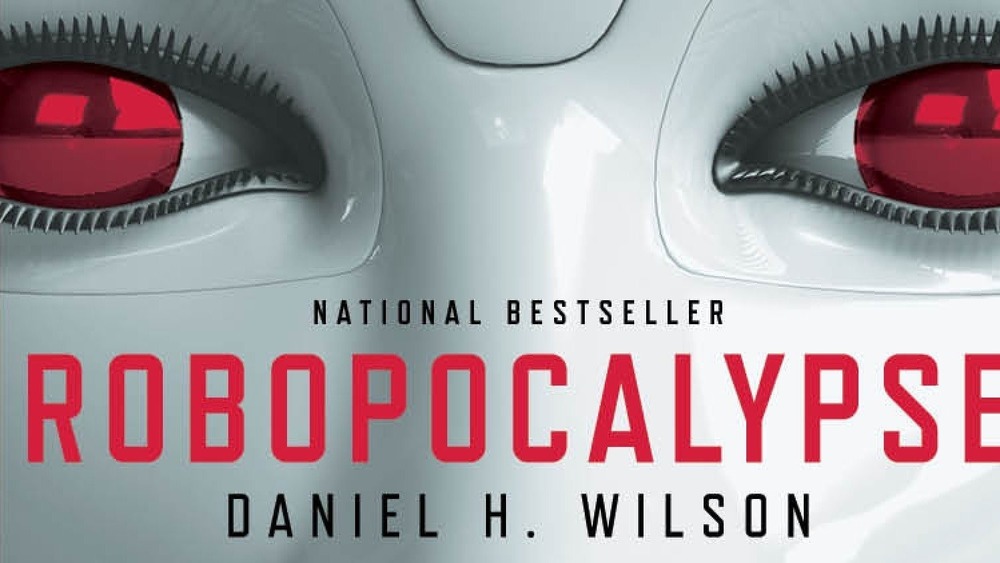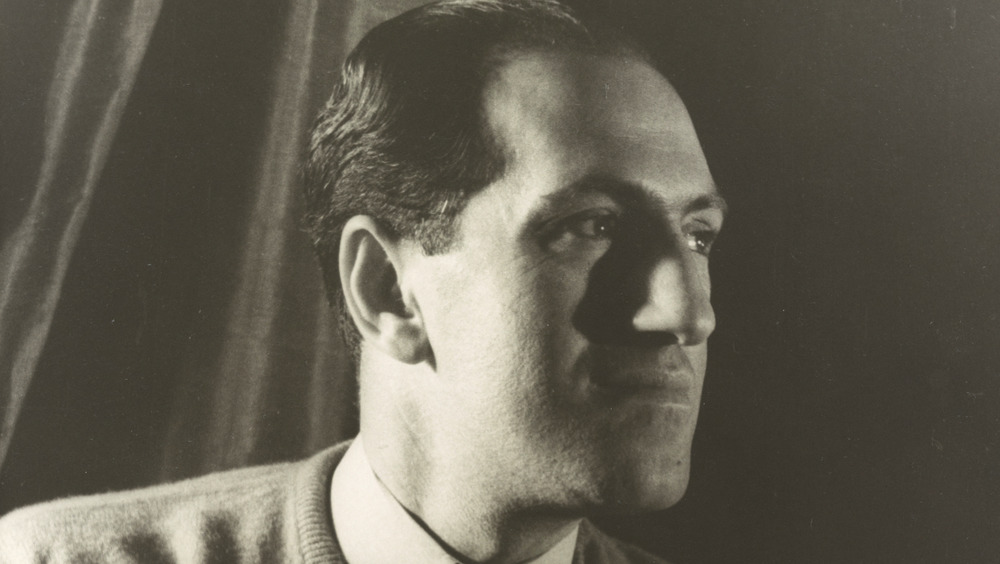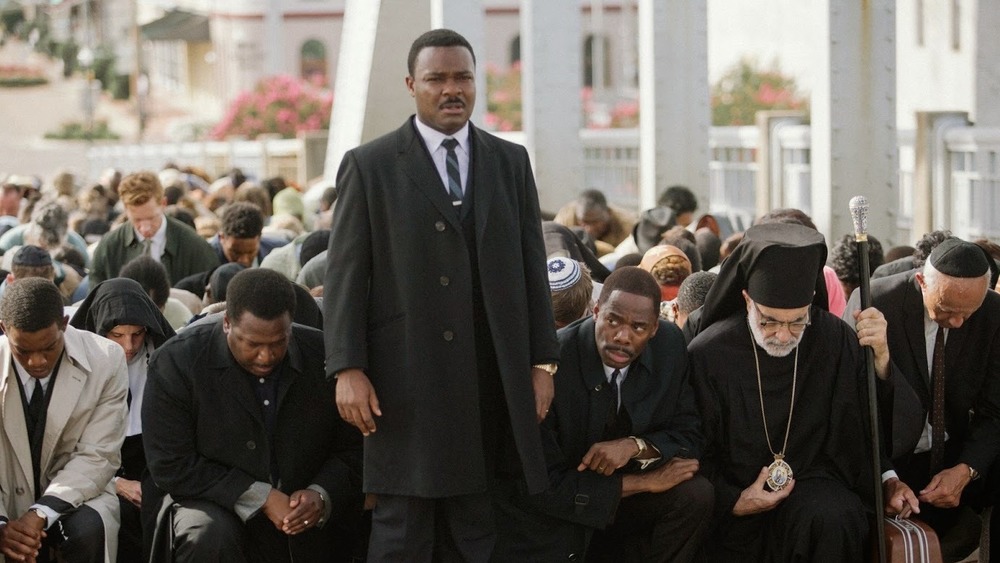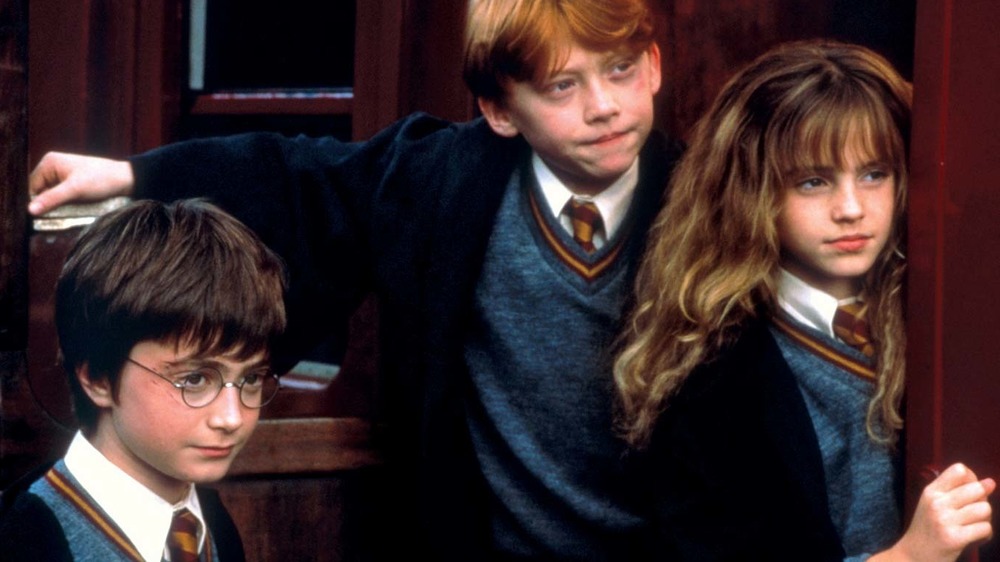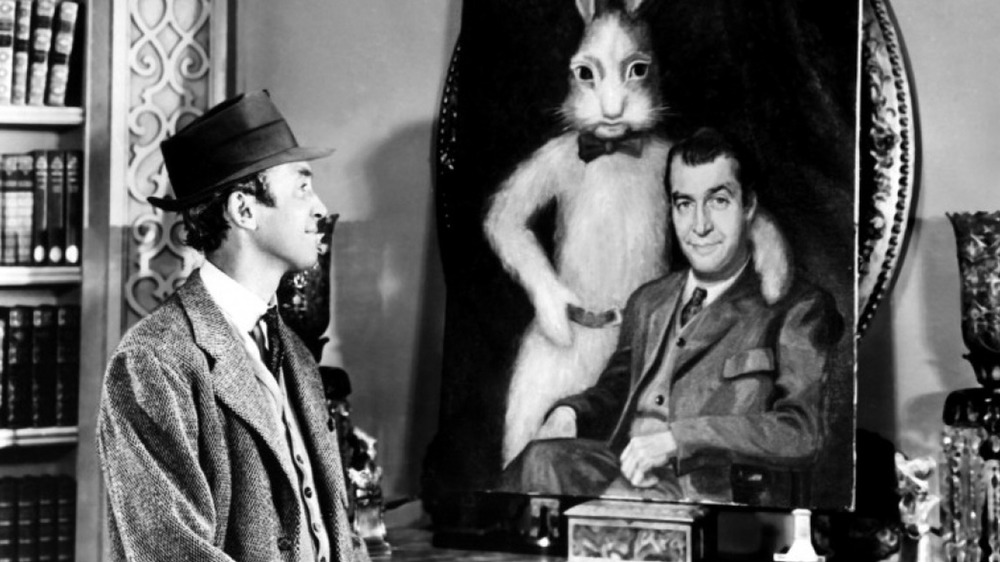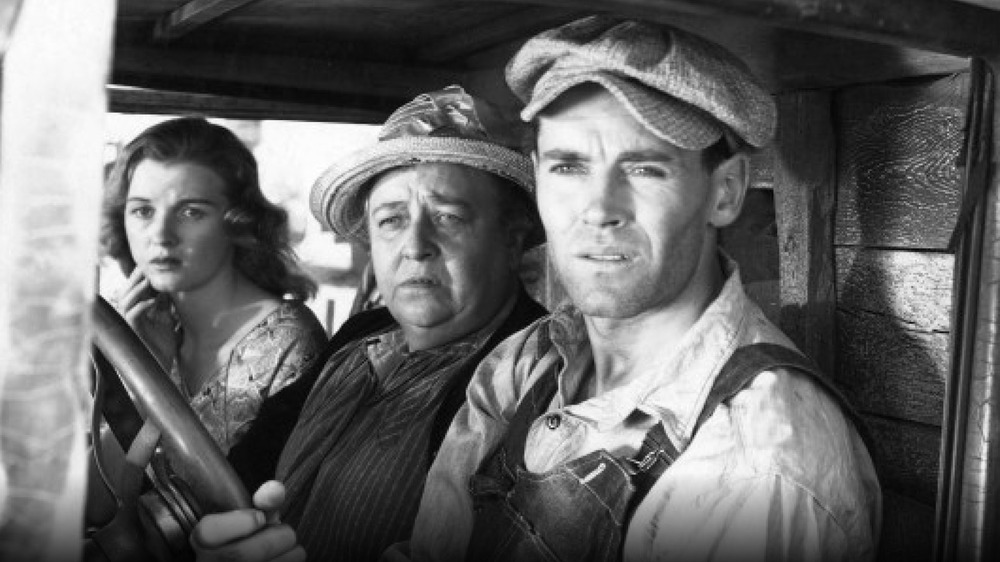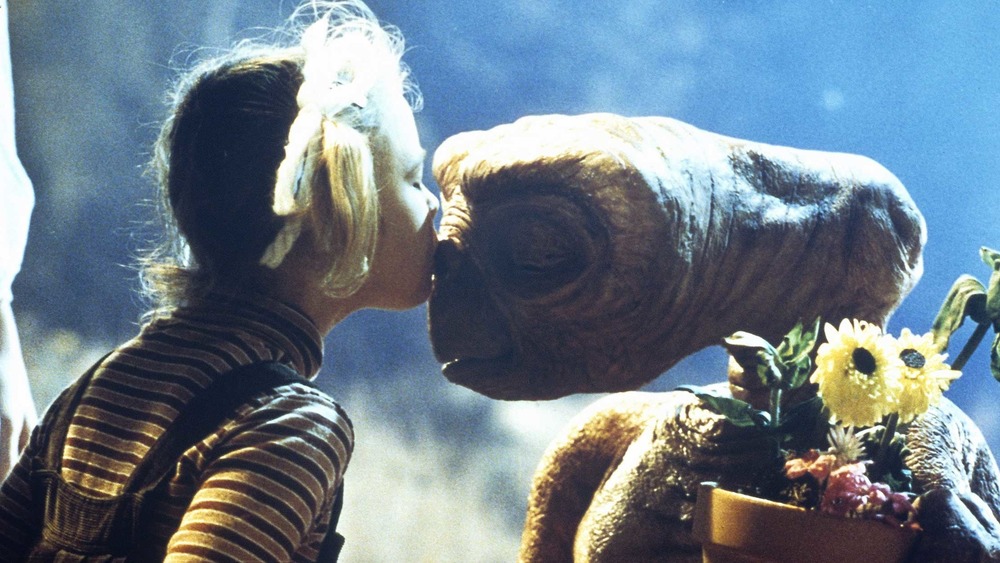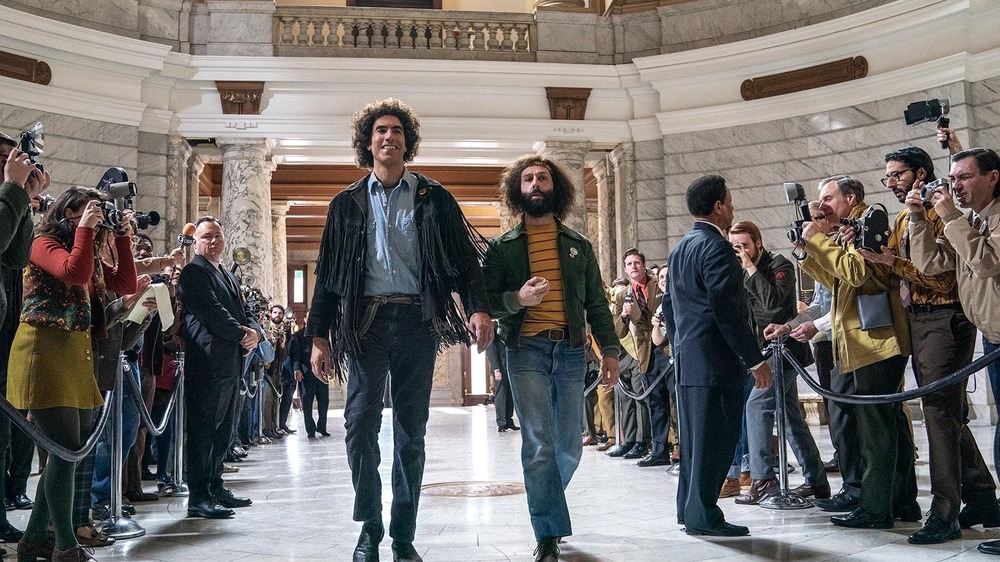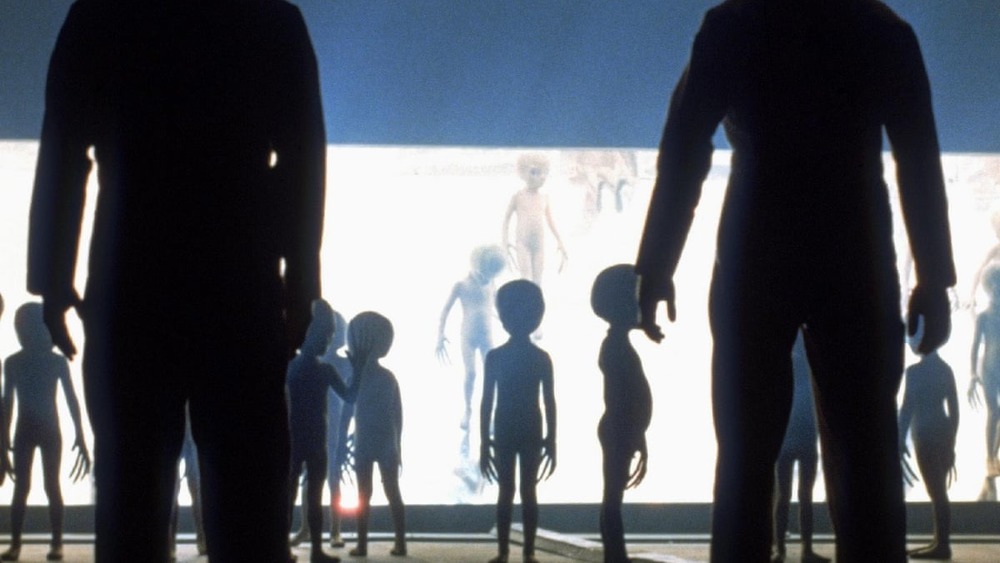Steven Spielberg Movies We'll Never Get To See
For nearly 50 years now, Steven Spielberg has functioned as one of the most powerful figures in all of Hollywood. Ever since Jaws put him on the map as a filmmaking force to be reckoned with, Spielberg has gracefully slid between directing big-budget tentpoles and Oscar-winning dramas while also working as a producer and head of various movie studios. With all these irons in the fire, it's no surprise, then, that Spielberg has become attached to projects that never materialized. Nobody gets to do everything they set out to do, and that's doubly true for a man with so much on his plate as the director of Jurassic Park.
These unrealized Spielberg films usually align with the two kind of projects the man has become associated with — blockbusters and period biopics — but the reasons for why they never got off the ground are far more varied. For some of them, it was simply the director not having enough interest in the material to pursue bringing them to the silver screen, while others were held up by forces too big even for a titan like Spielberg. Whatever the reasons, some of Spielberg's unmade projects have ended up garnering legendary reputations almost as large as those surrounding the movies he did get off the ground.
Steven Spielberg almost took a crack at Indiana Jones 5
For many years, Steven Spielberg's Indiana Jones 5 was something that seemed so close and yet so far. A project discussed as far back as August 2008, the project appeared to be finally coming together in March 2016 when Disney (who got the rights to future movies in the franchise with their 2012 purchase of Lucasfilm) set a July 19, 2019 release date for the film. Now, Indiana Jones 5 was no longer something Harrison Ford and Steven Spielberg had to talk about in vague terms in interviews. It seemed to actually be on its way. But the film was then delayed a year later to July 2020, and the film's screenwriter, David Koepp, later confirmed that Mutt Williams (Shia LaBeouf), who was introduced in Kingdom of the Crystal Skull, would no longer be in the franchise.
Beyond the fact that Harrison Ford once said that this iteration of Indiana Jones 5 would involve the "history" of the famed archaeologist, no story details were ever revealed for Spielberg's take on this sequel. Said details will likely remained shrouded in mystery given that Spielberg left the project in February 2020. James Mangold stepped in to direct the film instead, making this the first time in history an Indiana Jones movie would be helmed by somebody that wasn't Steven Spielberg. While Kingdom of the Crystal Skull was able to escape a lengthy development process, the same couldn't be said for Indiana Jones 5.
Sadly, the Robopocalypse was averted
After Indiana Jones and the Kingdom of the Crystal Skull, Spielberg took a ten-year absence from the domain of big-budget blockbusters, a strain of cinema that he'd helped to create. After a prolonged absence, the filmmaker finally returned to this genre with the 2018 hit Ready Player One. However, he was initially set to make an even earlier return to this realm with another film adaptation of a popular sci-fi book. Robopocalypse, based on the Daniel H. Wilson novel of the same name, was set to be Spielberg's first post-Crystal Skull blockbuster directorial effort, one with a screenplay penned by The Cabin in the Woods director Drew Goddard.
The production actually got far enough to cast the two leads, with Chris Hemsworth and Anne Hathaway taking up the roles, while Ben Whishaw was also set to be part of the cast. Release dates for July 2013 and later April 2014 date were also established, with Disney and 20th Century Fox set to distribute domestically and internationally, respectively, for DreamWorks Pictures. However, these steps towards being realized weren't enough to save Robopocalypse from being tossed into Spielberg's "what if?" pile. At the start of 2013, the film was abruptly shelved, with Spielberg at the time maintaining that he was just delaying the production for a few months to get the script perfected. Eventually, though, Spielberg's Robopocalypse never got off the ground. The last word on the project came in early 2018, when Michael Bay was attached to direct.
Spielberg almost made a George Gershwin biopic
The composer George Gershwin cemented himself as a permanent part of American art through compositions like Rhapsody in Blue. Why, then, wouldn't such an iconic figure get a splashy biopic treatment from one of the world's most acclaimed filmmakers? Well, such a project was announced at the outset of 2010, with Zachary Quinto on board to play the role of Gershwin and filming planned to start in April 2010. If this untitled Gershwin biopic had followed the production timetable of Spielberg films like Munich and The Post, then it's conceivable that it would've been finished in time to compete in the 2010 awards season.
Unfortunately, how Spielberg's George Gershwin movie would've fared against 2010 heavyweights like The King's Speech and The Social Network will forever remain a hypothetical scenario. Despite a flurry of exciting developments, none of them ever resulted in an actual movie. Spielberg's George Gershwin movie didn't start filming in the spring of 2010, and it never got off the ground afterwards. There's been no word on it in the last decade, so it remains unclear why Spielberg was unable to get the project going. But while a Spielberg Gershwin movie was scuttled, at least we'll always have Gershwin's iconic compositions.
The director wanted to make a movie about Martin Luther King Jr.
Over the course of his career, Steven Spielberg has made biopics of several famous historical figures — Oskar Schindler, Frank Abagnale Jr., Abraham Lincoln, etc. That list almost included none other than Martin Luther King Jr., with a biopic that was initially announced in May 2009. At the time, Spielberg's studio DreamWorks had acquired the rights to use King's speeches in the film while actors like Will Smith, Jamie Foxx, and Denzel Washington were being eyeballed for the lead role.
After that announcement, though, news on the project slowed to a crawl, with another update not emerging for years. Spielberg would later reference the film as one of his upcoming projects in 2013, saying that the movie is "more a story of King and the movement and also about how his admiration for Mahatma Gandhi helped to shape his moral core." Afterwards, news on the project once again went quiet, though it got a renewed jolt of life when David Oyelowo, who played MLK in the 2014 film Selma, revealed in June 2015 that Spielberg had approached him about reprising the role of MLK in his own biopic.
Oyelowo expressed uncertainty over that prospect in the interview, though we don't know if he ever got the chance to make a concrete decision on Spielberg's offer as that was the last major update on the project. Presumably, this Martin Luther King Jr. biopic is no longer on Spielberg's plate, even though as of at least 2017 (according to Vice), it seems his company still holds the film rights to all of MLK's speeches.
He almost took us to Hogwarts with Harry Potter and the Sorcerer's Stone
When Warner Bros. first secured the film rights to the Harry Potter novels, their initial ambitions called for a highly popular children's book series to be adapted by an equally popular filmmaker. Various acclaimed directors would be considered for the job, including the likes of Terry Gilliam and Ivan Reitman. However, the very first name the studio hoped to get for the project was Steven Spielberg. On paper, it seemed like a natural fit given Spielberg's track record not only with book adaptations but also with family-friendly, crowd-pleasing blockbusters. The pairing just seemed too perfect not to come true.
Unfortunately, the match wasn't meant to be, with news breaking at the start of 2000 that Spielberg had passed on the project. At the time, Spielberg said that his decision to not take on Sorcerer's Stone was because, "My directorial interests are taking me in another direction." Several additional reasons have cropped up over the years over as to why Spielberg passed on this endeavor. One prevailing story is that Spielberg and the producers came into creative conflicts, with Spielberg wanting to adapt the material as an animated movie, as well as utilizing material from later books and possibly casting American actor Haley Joel Osment as Harry.
Potter producer David Heyman, meanwhile, has said that Spielberg merely chose to tackle A.I.: Artificial Intelligence instead, while Spielberg has maintained that the lack of risk involved in adapting Harry Potter made him pursue other projects. Whatever the reason, Spielberg and Harry Potter weren't meant to be united.
He might've reimagined Harvey
Wondrous sights have greeted audiences across Steven Spielberg's movies. Think of the first time dinosaurs are shown in Jurassic Park or the initial instance of E.T. using telepathy to lift objects off the ground. Even the emergence of the Tripods in War of the Worlds has a sense of majesty to it, albeit of the terrifying variety. At one point in time, though, Spielberg aimed to subvert this career motif by directing a whole movie where its most wondrous creature was entirely invisible. He would've accomplished this by tackling a remake of Harvey, the story of a man and his invisible rabbit pal. Originally a Jimmy Stewart vehicle from the 1950s, it was announced in August 2009 that Spielberg was fast-tracking a new take on the property.
Scant details have emerged over how Spielberg would've handled the material, though his love for the mid-20th century (particularly in his most recent works) makes it a safe bet that he would've kept to the time period explored in the original Harvey movie. Of course, audiences never got a chance to discover how Spielberg would've approached the setting or any other part of this material because, in December 2009, the project was abruptly canceled. The film went to the wayside because of Spielberg's challenges in casting the lead role after Tom Hanks passed on the part. Struggling to find a modern successor to Jimmy Stewart, Steven Spielberg's Harvey hopped away as a potential project.
His Grapes of Wrath film never took off
John Ford is one of the most famous director in Hollywood history, and in the man's impressive filmography, The Grapes of Wrath is one of his very best projects. Based on John Steinbeck's novel, this 1940 classic tells the story of Oklahoma migrant workers who make their way to California during the Great Depression. Both the book and the movie are considered classics, and if anyone today tried to give the story another go, they'd be working in the shadow of both Ford and Steinbeck. And who wants that?
Of course, such a daunting prospect becomes a lot more interesting when Spielberg is involved. The famous director decided to take on the task in July 2013. At the time, representatives for Spielberg admitted that securing the film rights to the novel would be a complicated process. The full complexities of that process were reflected in 2017, when the descendants of Steinbeck went to court over who had film rights to the author's works. In the process, it was revealed that these disputes had halted plans for a Spielberg-directed version of Grapes of Wrath starring Daniel Day-Lewis. With all that talent on board, it's likely this version of Grapes of Wrath would've been more than just a run-of-the-mill adaptation and could've stood on its own feet rather than just the shoulders of Ford's original film. Alas, legal disputes crushed this project before it could even get off the ground.
Fortunately, we were all spared E.T. II: Nocturnal Fears
If a movie is even halfway successful, talk of a sequel will inevitably emerge. Should it be any surprise, then, that there were discussions of a follow-up to E.T. given that, for a long time, this sci-fi tearjerker ended up being the highest-grossing movie of all-time? In the wake of E.T.'s box office success, Spielberg and original E.T. screenwriter drafted a 10-page treatment for a second film entitled E.T. II: Nocturnal Fears.
As recounted by Birth.Movies.Death, E.T. II would've been a massive departure from its predecessor in many ways, including the prominent presence of carnivorous evil aliens searching for E.T. The plot would've eventually concerned these nefarious otherwordly beings kidnapping Elliott and his friends and promptly torturing them for information. Most baffling of all in this matter is that E.T. played a puzzlingly small role in the proceedings.
If you thought the original E.T. was brutal, E.T. II and its extensive scenes depicting children being terrified and tortured set out to surpass your greatest nightmares. For obvious reasons, the project never moved forward. Reading over the treatment for the project, it's easy to conjure up dozens of reasons for why E.T. II: Nocturnal Fears wouldn't work, but Spielberg was reportedly most worried about ruining the specialness of the original E.T. This was probably for the best. After all, did anyone watch the first film and think that what it really needed was child torture and meat-eating aliens?
We almost witnessed The Trial of the Chicago 7 much earlier
The acclaimed courtroom drama The Trial of the Chicago 7 debuted on Netflix in October 2020 as a film written and directed by Aaron Sorkin. It arrived after well over a decade of development that saw the film initially being prepped as a Steven Spielberg directorial effort. In 2006, Spielberg called upon Sorkin to write a script based on the real-world events pertaining to the trial. Casting subsequently got underway, with Sacha Baron Cohen being in talks to portray Abby Hoffman and Will Smith on tap to play Bobby Seale. Plus, Spielberg would later confirm that he'd been eyeballing Heath Ledger for the role of Tom Hayden.
With all this A-list talent assembled, only one thing could prevent Spielberg's Trial of the Chicago 7 from existing — a writers' strike. The 2007-2008 Writers Guild of America strike ensured that the script couldn't get revised in time for the initial April 2008 start date. Further complications for the production included concerns over a potential Screen Actors Guild of America strike. With these problems emerging, the project was scrapped. Over a decade later, The Trial of the Chicago 7 did manage to emerge as a finished film, though this time with Sorkin behind the camera instead of Spielberg. Interestingly, across such a prolonged development cycle, Sacha Baron Cohen managed to hold onto the role of Abby Hoffman, though the rest of the cast was entirely different from Spielberg's version of the project.
Steven Spielberg almost got scary with Night Skies
One of the most famous unmade movies in horror history, Night Skies was originally intended as a sequel to Close Encounters of the Third Kind. Spielberg wasn't looking to just rehash the plot of Third Kind, though, so he came with a new take on the idea of mankind and aliens interacting. Here, the basic premise concerned a group of extraterrestrials who come to a farm on Earth and torment the family that lives there. The project got far enough long that visual effects artist Rick Baker created animatronic figures for the film's aliens.
However, Spielberg eventually grew disinterested in the project, which he felt lacked the kind of humanity that made Close Encounters of the Third Kind such a personally important project for him. While it didn't look like Night Skies would ever hit the big screen, a key element of it would end up inspiring a future Spielberg movie. The one kindly alien in the movie, Buddy, captured Spielberg's imagination. Rather than further pursue Night Skies, Spielberg opted to make a new movie focusing on just this otherwordly critter, which would eventually result in E.T. Influencing one of Spielberg's most famous movies gives Night Skies a legacy far greater than most abandoned Spielberg projects.
